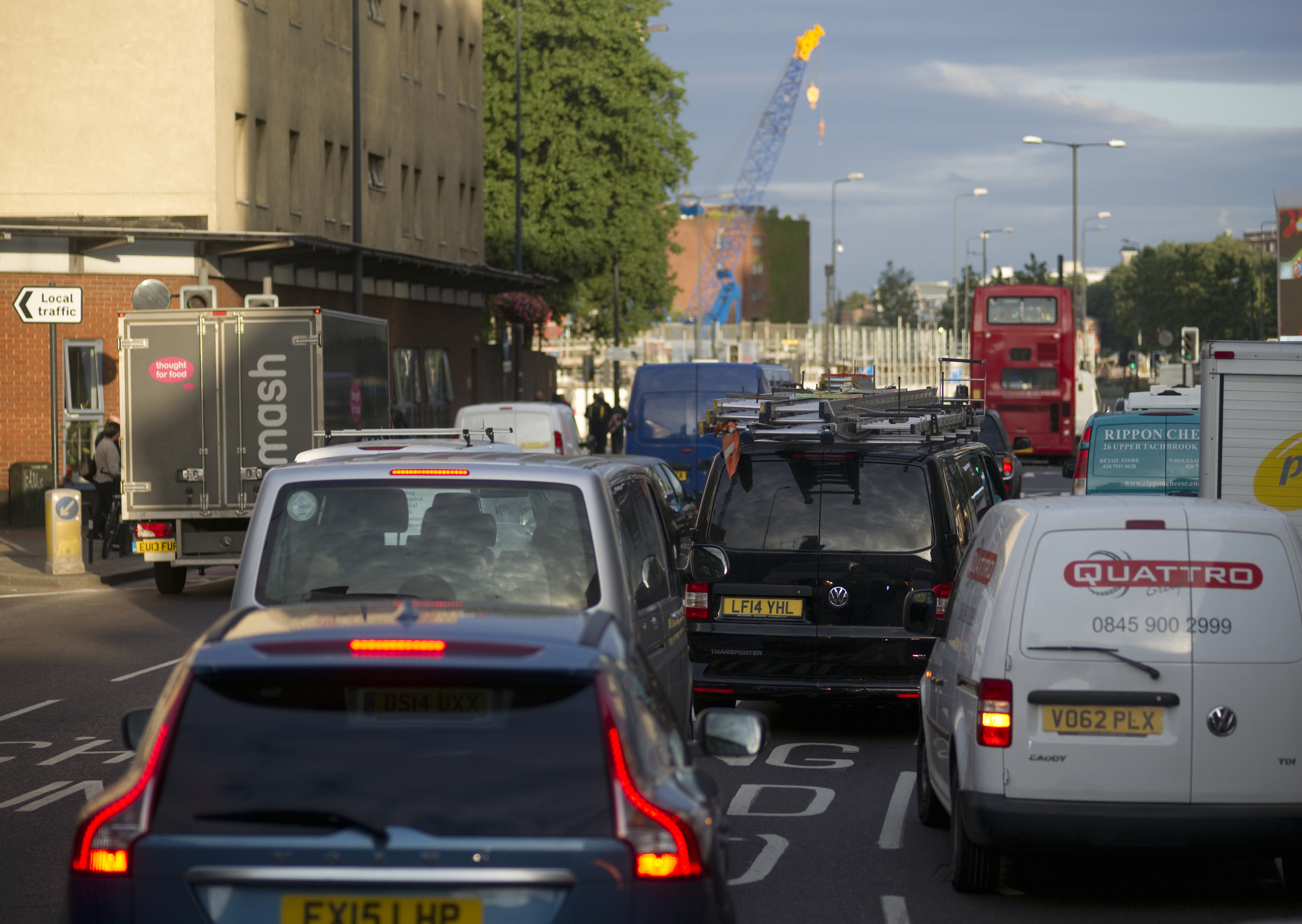Cycling groups welcome proposals to introduce road pricing to London
Mayor of London Sadiq Khan is considering introducing a road pricing scheme in the capital to discourage car use


Cycling groups have welcomed proposals to introduce road pricing in London as part of a drive to reduce carbon emissions and improve air quality in the capital.
Sadiq Khan, the Mayor of London, said on Tuesday that he wanted London to be a "global leader" in smart road pricing - a system of charging drivers for their use of the roads. Other policies considered include extending the remit of the ultra low emission zone (ULEZ) or applying a daily clean air charge for all car journeys throughout Greater London.
Research commissioned by Khan showed that 25% of London's carbon emmissions come from road transport, and there would need to be a 27% reduction in vehicle kilometres in order to meet the city's net zero targets.
The report states: "London’s goal to be net zero by 2030 is only possible if transport emissions are reduced", and this is "is only possible with some form of road user charging".
>>> Study shows lack of infrastructure biggest thing holding people back from cycling
Dr Ashok Sinha, the CEO of the London Cycling Campaign, said that he was "hugely pleased" with the Mayor's report.
"Accelerated action is now absolutely vital to help Londoners switch away from private car trips to walking, cycling, shared vehicles and public transport," Dr Sinha explained in a press release.
The latest race content, interviews, features, reviews and expert buying guides, direct to your inbox!
"We also greatly welcome his direction to TfL to come up with options for a simplified, fair road charging scheme, to reduce carbon emissions, clean up our air, and reduce congestion."
He said that it is vital that car journeys are discouraged along with alternatives to car use expanded.
"Millions of car journeys take place every day in the capital that could easily be cycled, with all the negative impacts that follow," Dr Sinha said.
"There is no way we will hit the Mayor’s decarbonisation 2030 target in just eight years unless those trips are wholly or largely switched to another mode. That means London-wide road pricing, as well as an accelerated roll out of an easily accessible, high quality cycling network, must go hand-in-hand."
Mr Khan said that reducing car use was also a "matter of social justice": "Londoners on lower incomes are more likely to live in areas of the city most badly affected by air pollution and least likely to own a car. Nearly half of Londoners don’t own a car, but they are disproportionally feeling the damaging consequences polluting vehicles are causing."
Roger Geffen, Cycling UK's policy director, said that there has been a shift in opinion towards the principle of road pricing, especially in urban areas. He argued: "It is very heartening for all of us who see road pricing nationally and on an urban scale, for creating more healthy, sustainable and equitable transport policy framework."
"There is a chicken and egg relationship between investing in cycling, and other sustainable transport, and freeing up road space," Geffen explained.
"It's fairly easy to make the argument that investing in cycling and other sustainable transport is necessary in order to reduce traffic.
"But you also need to recognise that the opposite is equally true, that a willingness to reduce traffic and free up space for the cycle facilities is necessary before you can build them. You have to sequence the two, and that's the difficult bit in urban areas where space is finite."
Last week Londoners were advised to "reduce physical exertion", especially outdoors, due to "very high" levels of air pollution, meanwhile car use has almost returned to pre-pandemic levels in the capital.
Policies under consideration to reduce car use and thus encourage more people to use public transport or active travel include extending the ULEZ, modifying the current system, a clean air charge or a Greater London boundary charge.
The RAC's head of road policy, Nicholas Lyes, said that the Mayor's proposals would "punish those who simply cannot afford an electric car". Similarly, Edmund King, the AA's president said "charging vehicles off the road" was not the solution to cutting pollution.
However, Dr Sinha said that road pricing was "unavoidable to meet our London’s environmental and other objectives". He also said it was time for the government to "step up".
"While a smart and fair road charging scheme will help fund the large scale investment in active travel and public transport that London needs to address the climate emergency (as well as maintain its huge contribution to the UK economy), it won’t be sufficient by itself."
There is not one "easy move" from now to comprehensive cycling infrastructure, Geffen said. He explained: "There will necessarily be a transition where progressive improvements are made."
"For any given individual, their risk threshold will be in a certain place," he continued. "For some people, a partial improvement to cycling conditions will be enough for them, and there will be others who are, for whatever reason, sufficiently risk averse that they really need comprehensively good cycling conditions.
"Let's not let perfect be the enemy of good in how we get from where we are to where we ultimately need to be. The more good cycle facilities we provide the more people will come out. This will create the momentum and the freed-up space for more cycle facilities."

Adam is Cycling Weekly’s news editor – his greatest love is road racing but as long as he is cycling, he's happy. Before joining CW in 2021 he spent two years writing for Procycling. He's usually out and about on the roads of Bristol and its surrounds.
Before cycling took over his professional life, he covered ecclesiastical matters at the world’s largest Anglican newspaper and politics at Business Insider. Don't ask how that is related to riding bikes.